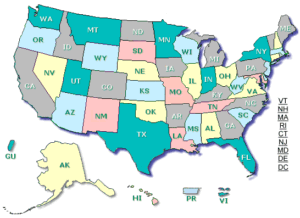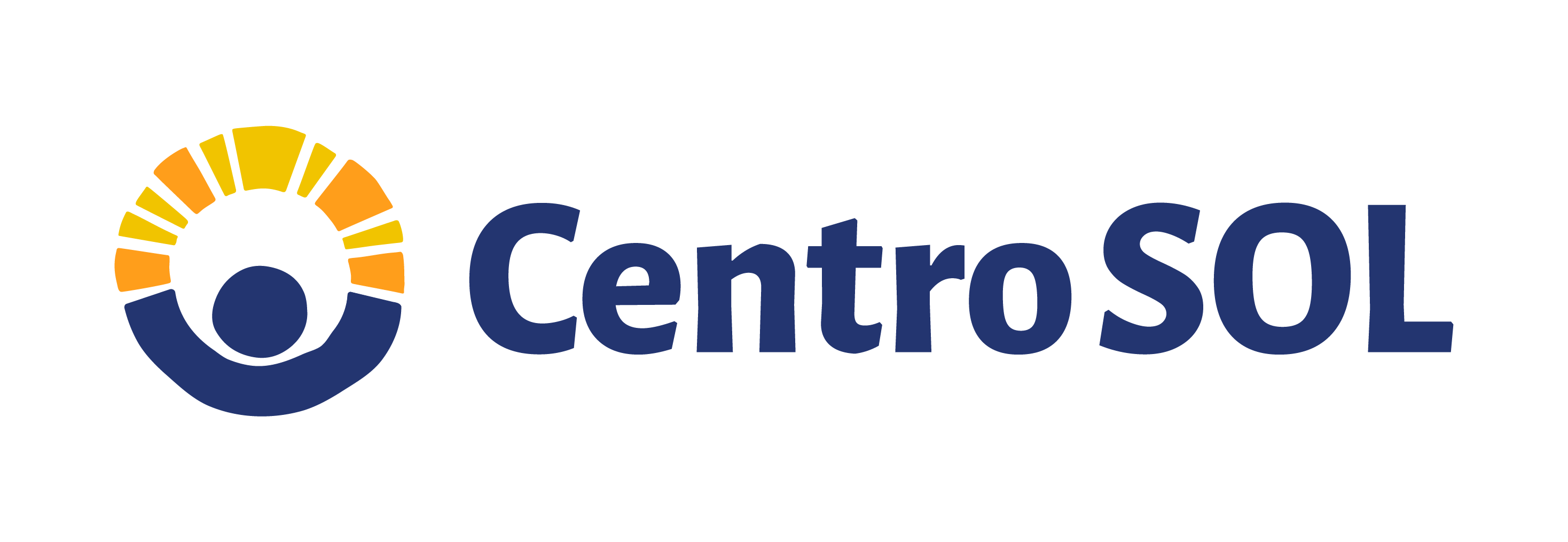
Article written by Mónica Guerrero Vázquez
Lee este contenido en español aquí: Ayudas económicas para estudiantes indocumentados.
Guide of Financial Aid for Undocumented Students
College education is very important for Latino and Hispanic students in the United States. Although there are barriers to accessing a college education, financial aid is available for undocumented students in several states.
In this article, we will explain which are financial aid for undocumented students and how to apply for each one.
Financial aid is critical for undocumented students to access higher education.
It is important to note that there are different types of financial aid, such as scholarships, student loans and financial aid.
To apply for financial aid, it is vital to submit the proper documentation within the deadlines defined in the grant and to follow the application process in detail.
Some students believe they are ineligible for federal financial aid because of their immigration status, but there are other opportunities available, such as:
- institutional scholarships
- private scholarships
- state aid
In this article, we list the most relevant financial aid options for undocumented students, providing information on scholarships, student loans and financial aid.
Can undocumented students receive financial aid?
Access to financial aid depends on each state, but there are different ways to obtain financing for higher education.
Undocumented students are generally not eligible for college scholarships for students from federal agencies, but they are eligible for other financial aid
Although undocumented students are not eligible for federal financial aid, they may still be able to obtain institutional or private scholarships offered, for example, by the universities themselves.
Scholarships from private academic institutions may be available to those applicants who complete the admissions process and may be awarded based on academic merit, not financial need.
What immigration status are eligible for state student financial aid?
There are specific profiles of foreign students who are eligible for state financial aid, such as:
- refugee
- asylum granted,
- Cuban or Haitian immigrant,
- conditional immigrant, or
- person admitted temporarily
More information about the admissions profiles for financial aid for undocumented immigrants can be found on the official website: https://studentaid.gov/es/understand-aid/eligibility/requirements/non-us-citizens
Scholarships for academic or athletic merit
By taking academically challenging classes and participating in extracurricular organizations, students may increase their chances of receiving merit scholarships. These scholarships are highly selective and are accompanied by financial aid. Not all universities award merit scholarships, however, universities such as the University of Chicago or Duke offer significant aid to outstanding students.
Where to find information on financial aid for undocumented students
Federal Student Aid is the largest provider of financial aid for college access in the US. The website has information on understanding, applying for, and administering each type of aid. Here you can find specific information for foreign students: https://studentaid.gov/es/understand-aid/eligibility/requirements/non-us-citizens
Best Colleges is one of the most extensive platforms for higher education information in the US. With all its resources to make the best decision about the future of your education. Here you can find information about scholarships for undocumented students: https://www.bestcolleges.com/resources/undocumented-students/becas/
Maryland State Financial Aid Programs
The Maryland Higher Education Commission’s (MHEC) Office of Student Financial Assistance (OSFA) offers a number of state grants, scholarships and loans for eligible residents in the State of Maryland. A complete list of programs offered in the State of Maryland can be found on the following website: https://mhec.maryland.gov/preparing/Pages/FinancialAid/descriptions.aspx.
TheDream.US is the largest college and career success program in the U.S. for undocumented immigrant youth. In the past few years we have awarded more than 10,000 college scholarships to Dreamers.
More information about this organization: thedream.us
My Undocumented Life is an informational platform that provides information about resources, programs and community organizing opportunities to high school and college students.
More information about this organization: https://mydocumentedlife.org/
Bigfuture Collegeboard is a website with free resources for exploring college options. This platform offers career search options, scholarships to access universities, estimate the cost of the college you want and much more. You can also create your own user profile to find personalized information. The platform also offers its own scholarships and opportunities.
More information about the resources can be found at: https://bigfuture.collegeboard.org/college-search/filters.
FinAid is a guide to financial aid for undergraduate studies only. They give you information about options such as loans you can access or public or private scholarships available.
More information about this guide: https://finaid.org/
Inmigrante Informado is a resource website for undocumented students where you can find tips on applying for college scholarships available to undocumented students, guides for parents on steps to take to plan for college and how to support their children.
More information about this guide: https://www.inmigranteinformado.com/recursos/estudiantes-indocumentados/
Access to financial aid by state

In addition to institutional and private scholarships, there are state scholarships and grants that may be available to international students. These scholarships and grants are awarded according to the requirements established by each state, so it is important to research and learn about the options available in the state where you want to apply to your university studies.
This is a list of the financial aid access policies for undocumented immigrants for each state.
States with Comprehensive Access to financial assistance
In-state tuition and some financial aid or state scholarships are available statewide to all undocumented students who are residents of the state. These are the states:
- California, Colorado, Connecticut, District of Columbia, Hawaii, Illinois, Maryland, Massachusetts, Minnesota, Nevada, New Jersey, New Mexico, New York, Oregon, Rhode Island, Texas, Utah, Virginia, Washington.
States with Moderate access to financial assistance
In these states students may have statewide access to in-state tuition for all undocumented students who are residents of the state. These are the states:
- Arizona, Florida, Kansas, Kentucky, Nebraska, Oklahoma.
States with limited access to financial assistance
In-state tuition or reduced tuition is available to all undocumented students who are residents of the state in at least some public institutions. These are the states:
- Delaware, Iowa, Michigan, Pennsylvania.
States with limited access only to DACA Students
State DACA recipients have access to at least some public institutions. These are the states:
- Arkansas, Idaho, Maine, Mississippi, Ohio.
States with no defined policy for financial assistance
There are no known policies on access to in-state tuition or state financial aid for undocumented in-state students, including DACA recipients. These are the states:
- Alaska, Louisiana, Montana, North Dakota, Puerto Rico, Puerto Rico, South Dakota, Vermont, West Virginia, Wyoming.
States with Restricted access to financial assistance
Undocumented students, including DACA recipients, are prohibited from accessing in-state tuition or state financial aid. These are the states:
- Indiana, Missouri, New Hampshire, North Carolina, Tennessee, Wisconsin.
States without access to financial assistance
Undocumented students, including DACA recipients, are prohibited from enrolling in all or certain public institutions, and are barred from accessing in-state tuition or state financial aid. These states are:
- Alabama, Georgia, South Carolina.
Types of financial assistance for undocumented students
There are different ways to pay for college education after you finish your high school education, one of them is through financial aid from the federal or state government.
Another form of financial aid is from educational institutions, that is, each university, institution or state has a series of grants available.
1 . State financial assistance
Which states allow undocumented students to access state financial aid?
It is important to keep in mind that states have different requirements for state scholarships. The best way to find the best source of information is to contact the college or university’s admissions office. Some of the states that offer scholarships for students who have Defferred Action for Childhood Arrivals (DACA) under the Dream Act protect tuition costs so that students with DACA can access in-state costs instead of international costs. These states implementing the Dream Act are:
- Maryland
- New Jersey
- Oregon
- Connecticut
- Washington
In addition, there are some states that protect tuition costs for undocumented students:
- California Nebraska
- Colorado New Jersey
- Connecticut New Mexico
- District of Columbia New York
- Florida Oregon
- Illinois Texas
- Kansas Utah
- Maryland Washington
- Minnesota
How do I apply for state financial aid if I think I am eligible?
FAFSA eligibility
FAFSA is the Federal Application for Student Aid. You are eligible to complete the FAFSA if you are a student:
- U.S. Citizen
- Permanent resident
- Non-eligible citizen
- Holder of a T visa
Apply for FAFSA financial aid
Federal student aid covers expenses such as tuition and fees, room and board, books and supplies, and transportation. Aid can also help pay for other related expenses, such as a computer and dependent care.
Thousands of schools across the country participate in federal student aid programs. Ask school by school what type of aid they offer.
Apply for federal student aid (grants, work-study and loans) using the Free Application for Federal Student Aid (FAFSA®) form. This application is completely free; you will never have to pay anything.
FAFSA Application: https://studentaid.gov/h/apply-for-aid/fafsa
The FAFSA form you complete must correspond to the school year for which you plan to apply for aid. For example, if you are applying for financial aid for the 2023-24 school year, complete FAFSA 2023-24.
FAFSA for summer classes
If you plan to take summer classes, contact your school’s financial aid office to determine which FAFSA form to complete.
2. Scholarships for students
Institutional scholarships
A scholarship is one of the best financial aid options for undocumented students. They help finance their higher education, including full scholarships. Among the types of scholarships there are those that are specific for Hispanic and Latino immigrants. It is important to research and know the requirements and deadlines to apply for these scholarships.
3. Student loans
Despite the limited availability of student scholarships for undocumented students, there are options to help them finance their college education in the United States. Fortunately, there are student loan options available to help cover the costs. However, your citizenship status may influence the amount and access to student loans. The first step in finding these loans is to look for a lender that is willing to work with undocumented students. You may need to explore different options and talk to financial counselors to find the best solution for you. Regardless, there are resources available to help you achieve your educational goals regardless of your immigration status.
You can explore tools to search for and prepare to borrow student loans by checking out the federal student loan website https://financialaidtoolkit.ed.gov/tk/outreach/target/borrowers.jsp.
4. Private scholarships
Private universities, although more expensive, often offer significant financial aid to fund all or part of higher education without restrictions based on students’ citizenship status. Some highly selective universities are willing to support international students, even if they are not U.S. residents or citizens.
Private universities consider international students as a valuable part of their community and offer special opportunities and scholarships for them.
Where can I find private scholarships for undocumented students?
Universities such as Harvard University explicitly tell prospective applicants that undocumented students are eligible for financial aid. You can visit the universities’ websites for more information https://college.harvard.edu/resources/faq
In addition to large universities, other universities in smaller cities also welcome undocumented students with scholarships and financial aid packages. Some private universities do not require proof of citizenship for college admission, especially those universities on the sanctuary campus list. Sanctuary campuses are colleges that have welcomed immigrant applicants.
- You can consider sanctuary universities that may have financial aid for undocumented students on this website http://crimmigration.com/2017/02/07/sanctuary-campuses-map/.
- Loyola University campus has a resource website for undocumented students https://www.loyola.edu/department/international-student-services/resources/undocumented-student-resources
- The University of Michigan has a website with recommendations on application and financial aid for immigrant students https://admissions.umich.edu/apply/undocumented-applicants
How to apply for financial assistance for undocumented students
Can a student with undocumented parents complete the FAFSA?
A Social Security Number (SSN) is required to apply for scholarships through FAFSA. Therefore, applicants who do not have a SSN will not be able to complete the application form. Parents or partners of applicants do not need a Social Security number, which is an important change introduced to the 2023 FAFSA application. An applicant who has an SSN can submit their FAFSA application even if their parent or partner does not have an SSN.
Can DACA students complete the FAFSA?
Yes, applicants must still have a Social Security number to apply for scholarships through FAFSA, so applicants with a Defferred Action for Childhood Arrivals (DACA) may apply for FAFSA.
Can you fill out the FAFSA if you don’t have a Social Security number?
Applicants without a Social Security number cannot apply for FAFSA. However, if applicants do have a Social Security number, as of December 2023, FAFSA does not require parents or partners to have a Social Security number to create a profile on StudentAid.gov in order to fill out the documentation relevant to them. If the FAFSA form requires a Social Security number, simply indicate that you do not have one.
Complete the FAFSA application
On the FAFSA application form, you will find a question about your citizenship. The answer to the citizenship question will be “Neither U.S. citizen nor eligible noncitizen” or “No, I am not a citizen or eligible noncitizen”. Parents or partners of a FAFSA applicant do not need to be U.S. citizens.
Place of residence refers to the state in which the applicant lives, not immigration status. The residency status question is only relevant to meeting Dream Act residency requirements that provide in-state tuition for DACA students.
Are there alternatives to FAFSA?
Students who do not have a Social Security number or FAFSA-eligible immigration status will encounter many barriers to seeking financial aid for higher education.
Despite the barriers to accessing financial aid for college, undocumented students can apply for state financial aid. Although FAFSA does not require a Social Security number on the application form, it is important to note that citizenship status may make the applicant ineligible for aid.
Depending on whether you have DACA, citizenship, permanent residency, or are an undocumented student you can search and find help. Check out TheBestSchools.org for some recommendations.
State Scholarships for Students in the State of Maryland
Undocumented students in the State of Maryland are eligible for certain opportunities to finance their college education.
The Maryland State Financial Aid Application (MFSAA) is an opportunity to apply for financial aid for students not eligible for federal aid. MFSAA makes it easier for students who are children of undocumented parents to receive in-state tuition under MD Education Article 15-106.8 and allows students to be considered for need-based financial aid.
Am I eligible to apply for MFSAA?
A student is eligible to complete the MSFAA if he/she meets the following requirements:
- is an undocumented student
- is a student who meets the non-resident exemption as described in 15-106.8 del Artículo de Educación de MD (link)
Find more information about MFSAA on the official student financial aid website at https://mhec.maryland.gov/preparing/Pages/FinancialAid/descriptions.aspx



